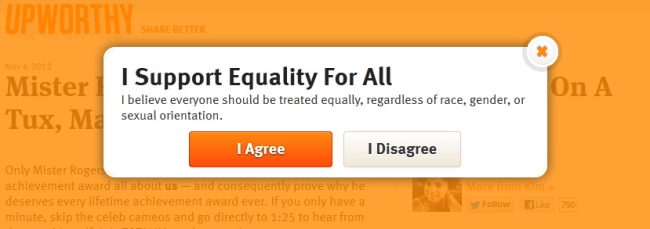Are Your Values Aligned? What NGOs Can Learn From Free Poppies

A few months ago, the Journal of Consumer Research published a research paper called The Nature of Slacktivism”. The researchers shared findings from a series of studies focusing on our “desire to present a positive image to others.” Charities and not-for-profits were especially interested in what the study had to say about how an initial, public act of giving can affect more meaningful acts of support for a cause.
Here’s an example from the study. Before Canada’s Remembrance Day, participants were given a poppy to wear to show their support for veterans. One group had the poppy immediately pinned on their coats–a public act of support–while the second group received the poppy in an envelope and were asked to privately put it on at their convenience.
Participants from both groups were intercepted a few minutes later by another researcher who asked them to make a donation to support Canada’s veterans. Those who received the poppy in the envelope–a private token of support–donated nearly three times more as those wearing the poppy.
Are Public Acts of Support Less Valuable Than Private Ones?
This result might worry non-profit marketers. It suggests that public acts of support (in person or online) are less valuable than private ones. If we’re concerned with on-boarding new supporters and moving them up the engagement ladder, then asking them to publicly like a Facebook page or share charitable content online might not be a good thing. This seems worrying indeed.
Much of the discussion surrounding these studies focused on this public-private dilemma. But, I believe the more powerful and actionable study results involve the notion of ‘values alignment.’
In one of the team’s studies, participants were asked to join a Facebook group. For half the participants, the group was identified as a public group, and for the other half, it was private. They were then instructed to read an article about the group. Finally, they were asked to reflect on how that group’s values aligned or didn’t align with the their own values. Then, they were asked to consider undertaking a subsequent, more-involved task (stuffing envelopes) for the group. The results are striking.
As you can see, participants who agreed that their own values aligned with the organization’s values were likelier to agree to providing subsequent support. The values alignment question seems to be more crucial than the public-private one.
Aligning Values Before Actions
Until recently, we could see the practice of values alignment in play on Upworthy.com. The much-emulated startup has been successful at generating a massive following by curating and optimizing viral content with a positive spin. When you visited a page on Upworthy.com, the site presented you with a light box designed to capture your email address. Unlike many such lead-generation tactics, however, the light box first asked you a question like “Do you support equality for all?” Only if you clicked the ‘I Agree’ button did you then see an email sign-up field. Upworthy rigorously tests everything about their site, and I’m assured by a colleague from the company that this values alignment approach outperformed the more conventional one.

You can apply this values alignment trick to your own charity and non-profit lead generation tactics. In social media, for example, it could take the form of rhetorical questions that precede clickable links. If you’re not doing so already, this approach offers a great opportunity to test the effectiveness of your messages. Try this experiment. Write one conventional Facebook ask, and one that incorporates values alignment, and share them each with geo-targeted sections of your fans. See which post earns more engagement, and then iterate appropriately.
Of course, we shouldn’t over-emphasize the results of one series of studies, but there’s a lot to be gained from taking a values-oriented approach to your online marketing.

hans peter meyer
2014-07-29
As always, much to learn from you folks. I was surprised at the results of the poppy A/B test. And, I’m very interested to see what you do with the climate change work you’re doing in Bonn.hpm
ps. I draw on the social media bootcamp you gave several years ago all the time – thanks